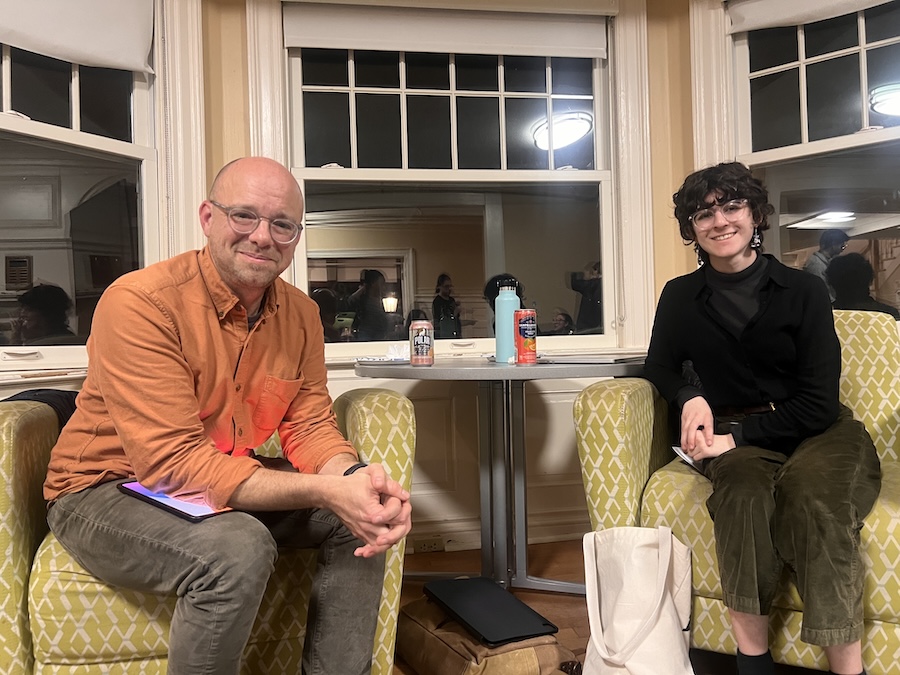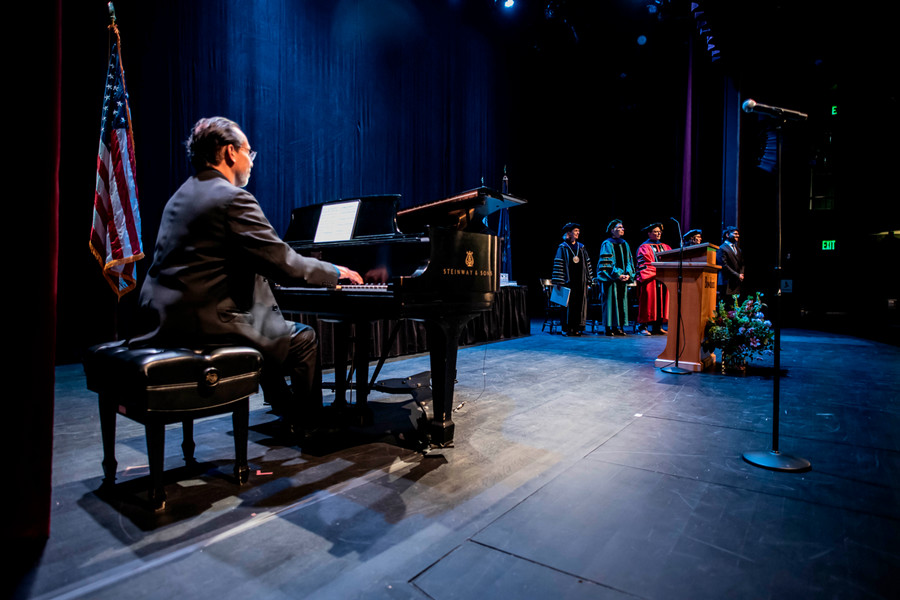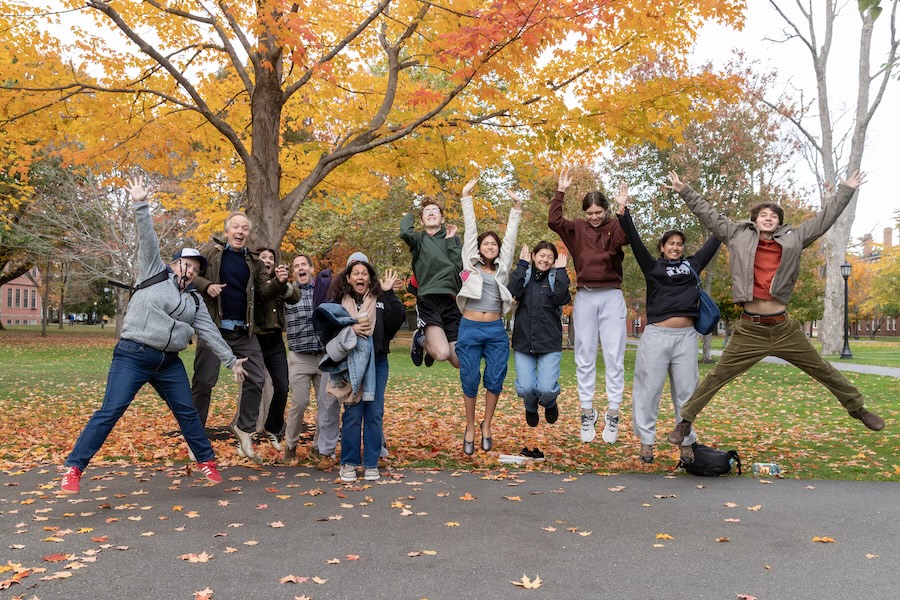Governor Kasich Offers Advice, Explains Positions to Big Bowdoin Crowd
By Rebecca Goldfine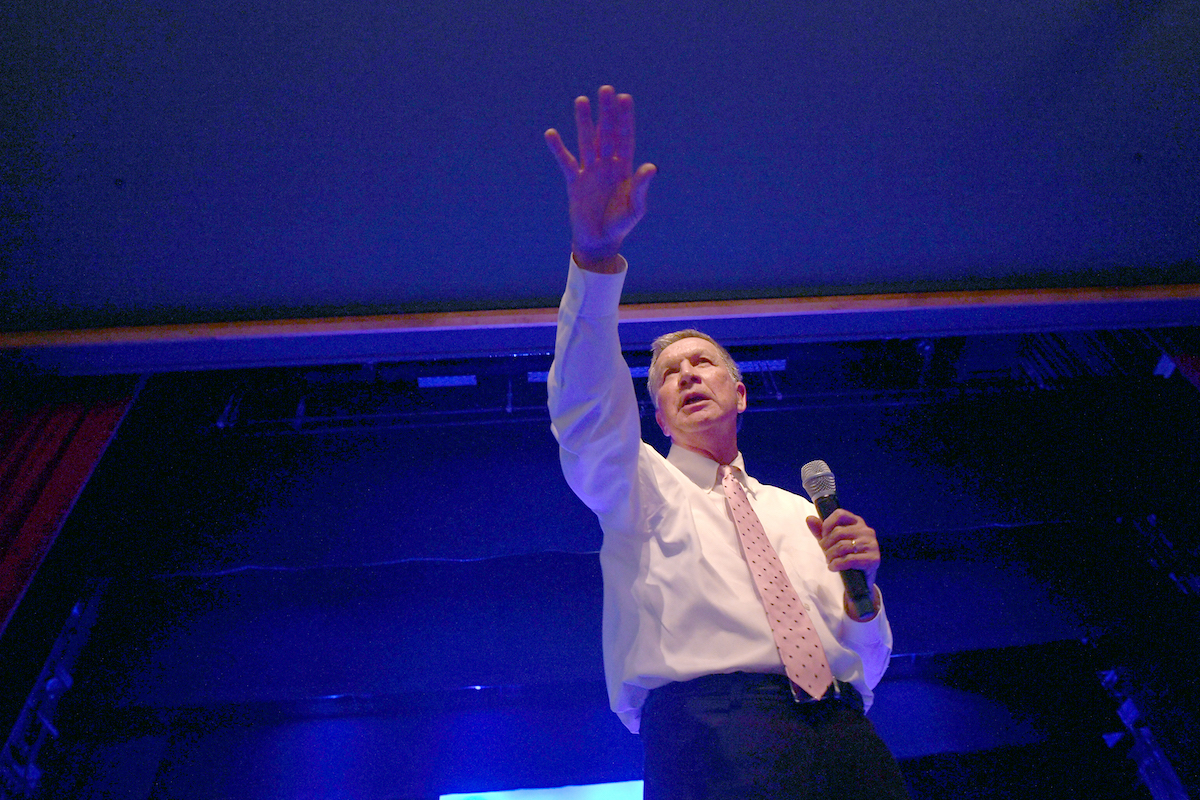
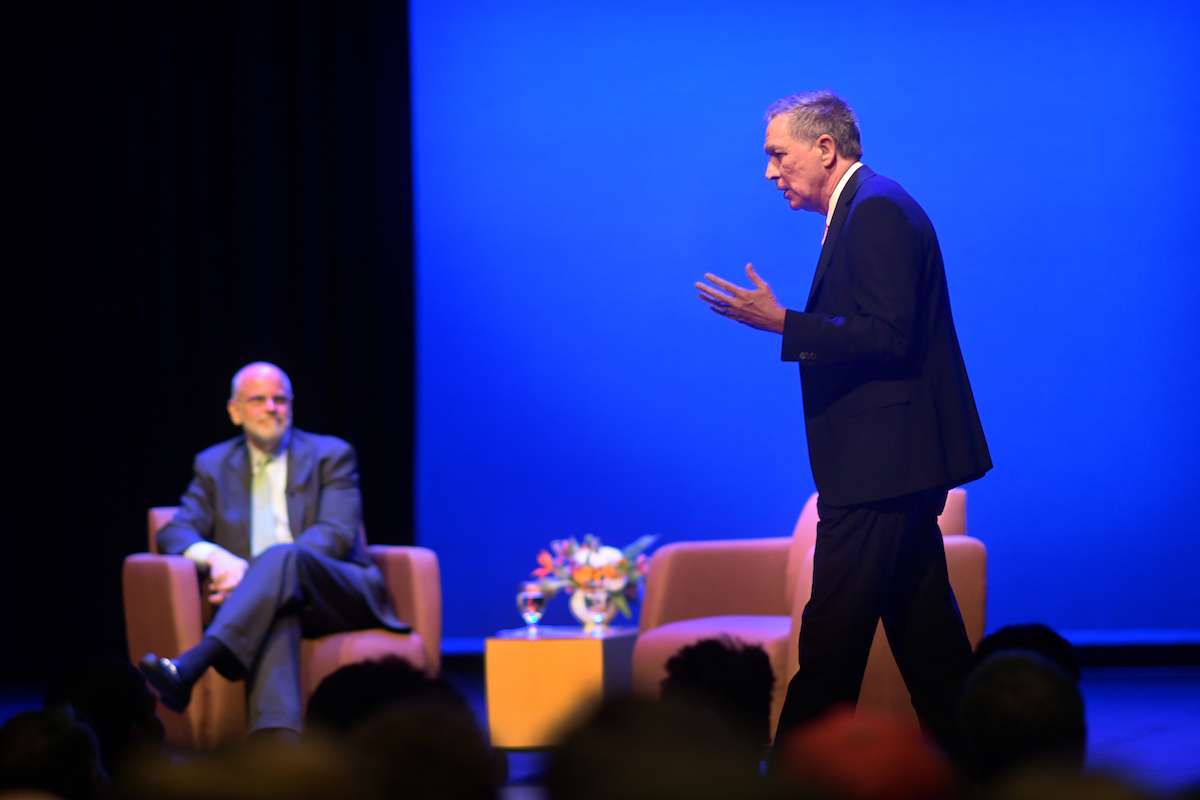
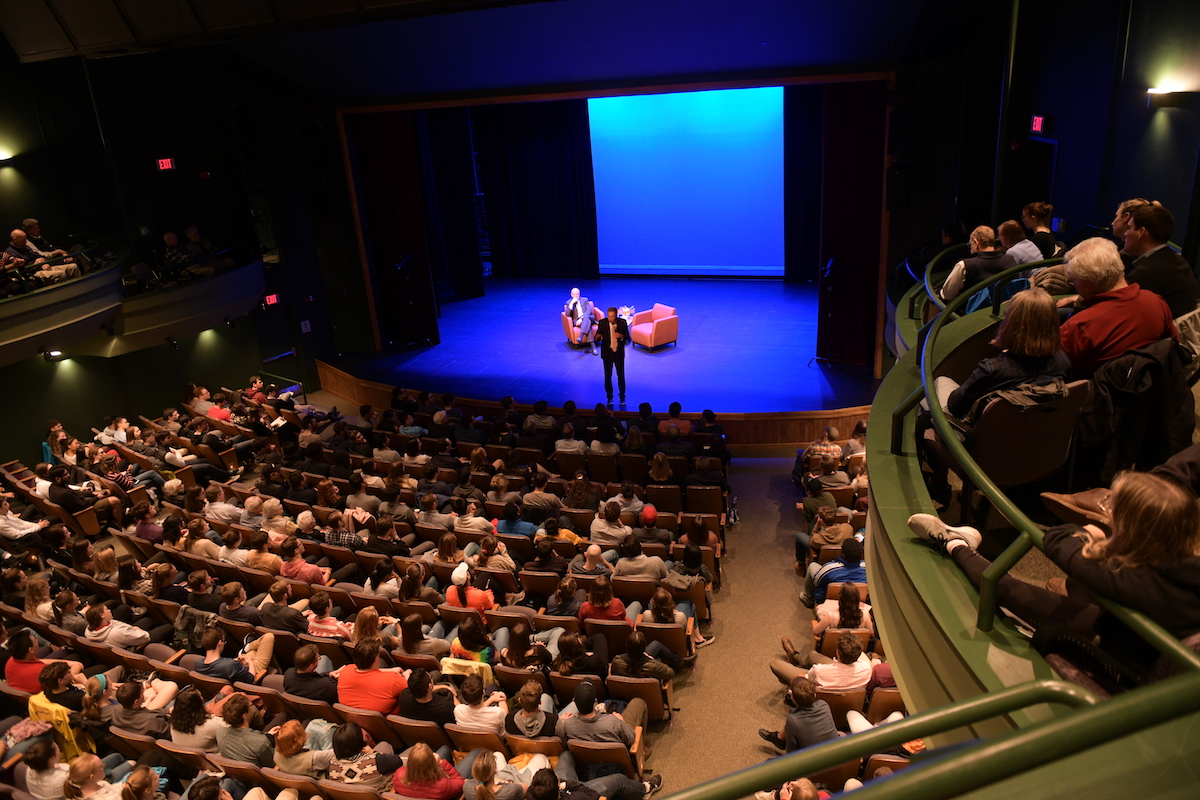
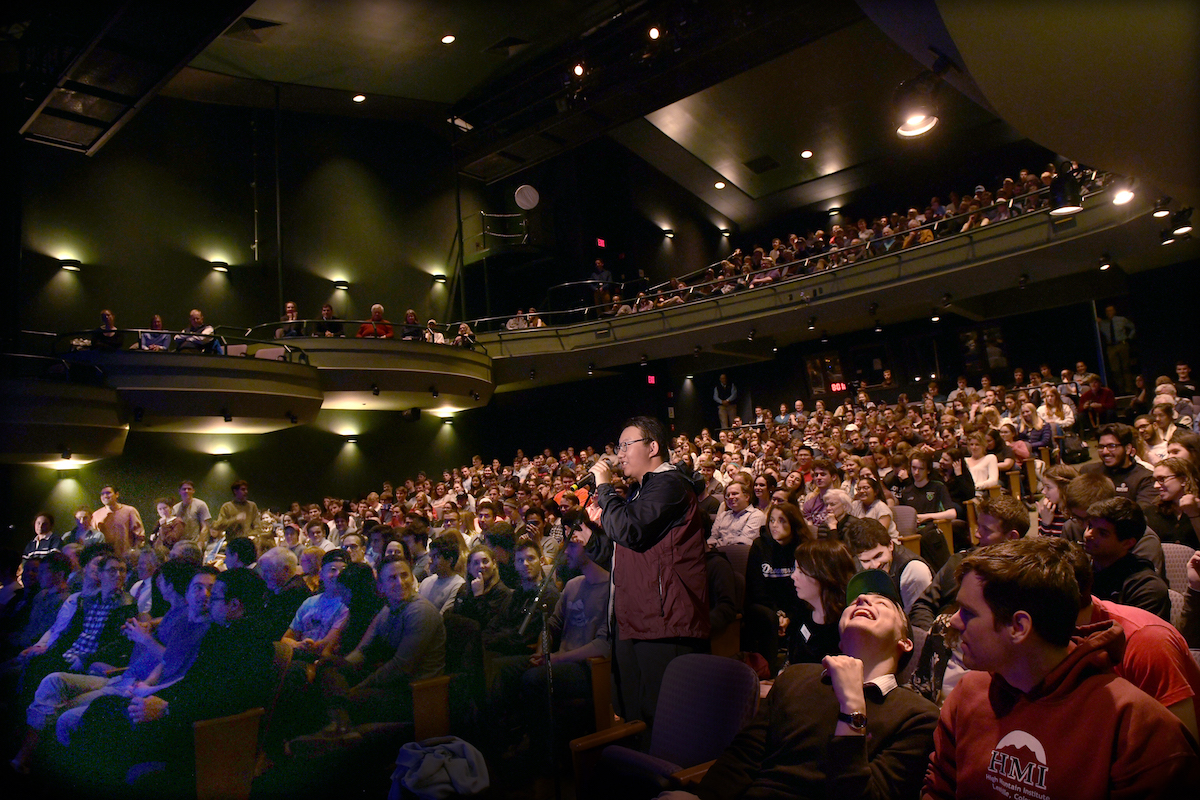
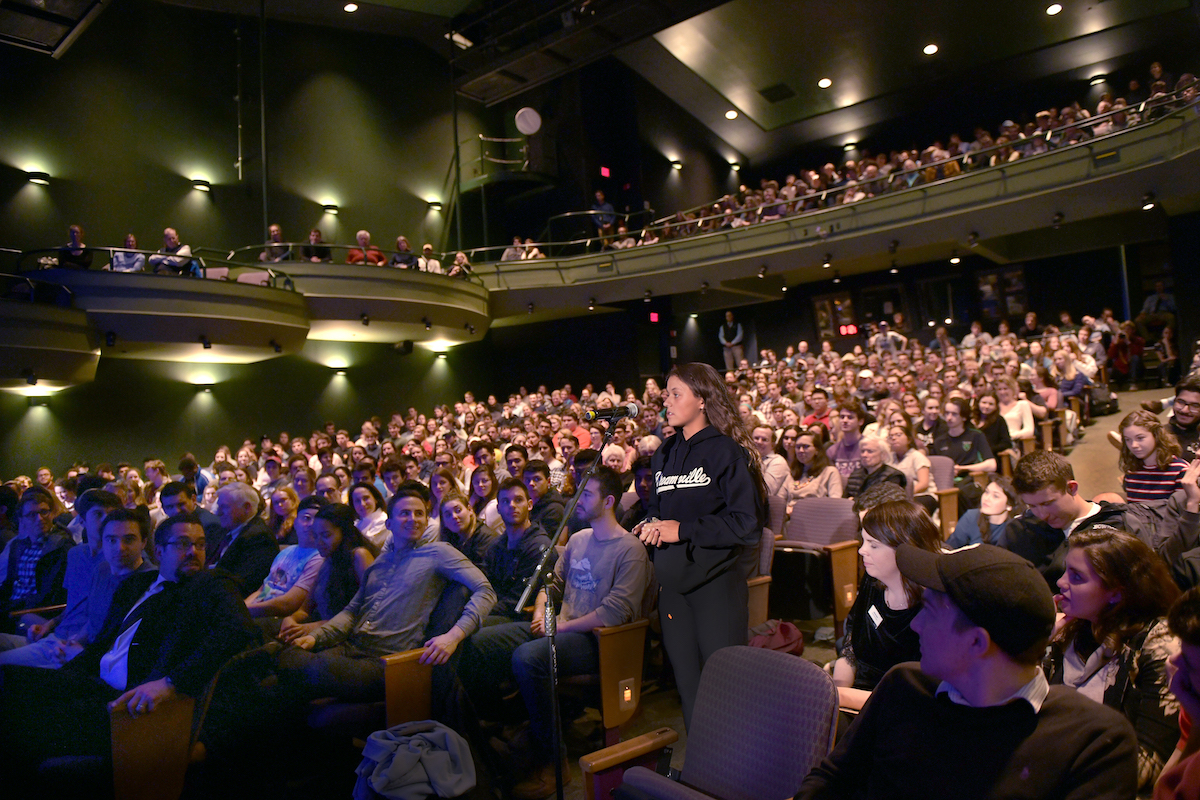
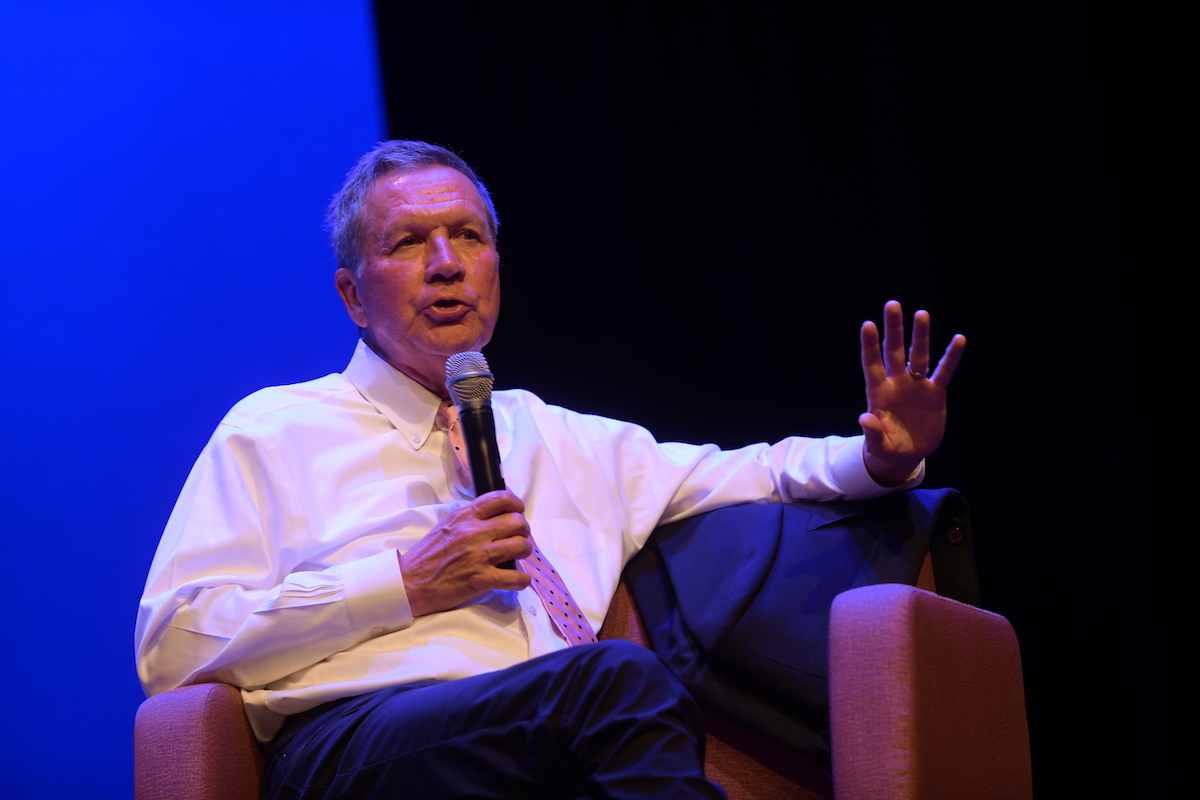
Kasich did not stay still for long stretches of a time during the one-hour event in Memorial Hall's Pickard Theater. Often, while addressing issues or stressing a point, he'd bounce out of his chair next to President Clayton Rose and walk to the edge of the stage to get closer to the audience.
While the event covered a lot of ground—criminal justice reform, abortion, immigration, the opioid epidemic—Kasich had a message for students that he reiterated a few times throughout the evening.
Don't get too worried about who's in the White House, he told them. "What matters in this country is you," he said. "Because power in this country doesn't flow from the top down. It flows from the bottom up. It all depends on us."
One student pushed back a bit on this. How, she asked, can the president not matter when she worries her health care will disappear? And Dreamers are worried they will get deported? And gerrymandering and the electoral college are weakening the power of her vote? "How can you say the president doesn't affect you when it's life or death for so many Americans?" she said.
Kasich clarified that while a president's actions do matter—and have more of an effect on some people than others—he advised her to take a bit of her energy "and pour it into something in this town. You will see a response, you'll see rewards, and you'll see progress."
Indeed, he argued that change will come when there is a groundswell of people demanding action on climate change, gun control, and prescription drug prices. "It'll be very hard for a politician to go to a town hall meeting and be a science denier," he said.
A Brief Bio: John Kasich served as a member of Congress from central Ohio for eighteen years before serving as governor of Ohio from 2011 to 2019. This January, Kasich became a political commentator for CNN. He's the author of several books, most recently Two Paths: America Divided or United, about his 2016 run as a Republican primary presidential candidate.
Rose asked if there was anything that would cause Kasich to run against President Trump again (Kasich was one of seventeen candidates in the 2016 Republican primary). He responded that he'd do it if there was a path to winning, but added that he didn't see that path today.
In response to a student question about being a maverick in his party, Kasich said he's not afraid to stick to his beliefs, even when they divert from the Republican platform. He pointed to his record in Ohio of expanding Medicaid and his efforts to reduce opiate dependency, all while building up the "rainy day fund" and seeing jobs grow.
"I have a right to define what it means to be a conservative and a Republican as much as anyone else," he said, before criticizing his party's drift away from free trade, immigration, and a limited federal deficit.
These days, he said he hopes to help generate "a brand new set of ideas—a manifesto" for his party on trade, the environment, and the federal debt, while promoting research and development in health care, renewable energy, and battery technology.
He was critical of what he saw as the failure of both parties to bring about immigration reform. "I think immigration is strong and good and positive for this country," he said.
Even more so, he said his faith drives him to want to offer a helping hand to "people who live in the shadows." This compassion extends to people outside of our country. "We can't just treat the border like some border thing," he said. "It's about our neighborhood."
People don't want to leave their homes in Latin America, he continued. They leave when they are threatened and desperate. "How lucky am I that I live in Ohio and that my daughters are in college?" he said. "I could have been in the caravan or floating on a tiny little raft with my family, and no one will let us land."
"We're all connected, each and every one of us, and if a little boy washes up on shore because no one will take him in, we've lost something of ourselves," he said.

